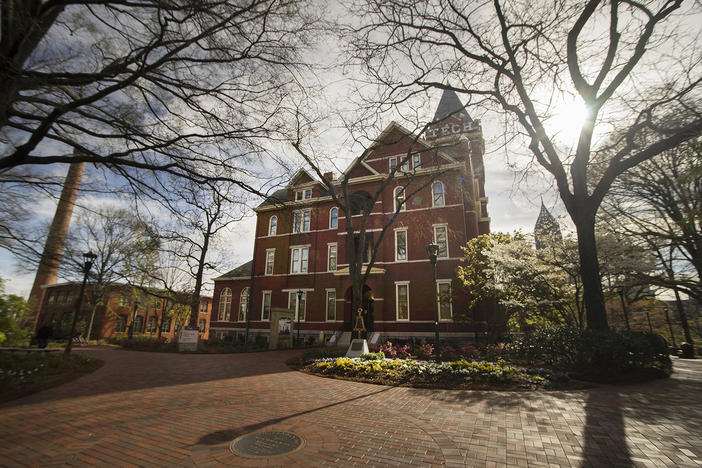That is incorrect. Well its technically correct, but we aren’t comparing 40-year olds to college aged people. At younger ages the hospitalization and death rates are lower for COVID than they are for the flu.
You do not have to be hospitalized to be really sick from COVID-19. I know of a 30-something man in Oriental who spent nearly three weeks mostly in bed with it. He would feel sort of OK for a day or so thinking it was about over, then he was back in bed. He's back at work now and tested negative twice in the past month, but still has almost no energy. He was a pretty health guy before.
[/QUOTE]
I can relate to your friend/acquaintance. I am recently 42 yo, and although I'm obviously not quite what I once was in my 20's, I'm still a former/sometimes current (powerlifting mostly...used to be powerlifting and running)competitive athlete. I've always loved pushing myself as hard as humanly possible when it comes to athletic competition, whether that's against fellow competitors, or just beating personal bests. I know that even at 42 yo, I can/could still hang with some of the younger athletes out there, and even some on our (GT) football team. And I have a bit of a different perspective on COVID-19 now that I've had it/still recovering from it than I did before I contracted it. As a highly active/highly athletic person, I've seen first hand what it's done to my athletic performance, even though I had was would be considered a "mild" case (symptoms didn't get anywhere near life threatening). I know that pre-infection my one-rep max on bench press stayed in the 415-425 lb range, with my 315 lb max rep range being 12-15 reps. I also know that although I can no longer run low 4-minute miles like I could in my 20s, I can still pop off a 6.5 minute mile with ease, and stay in the 7 to 7.5 min/mile range for several miles prior to COVID.
Even though I still trained as much as I could through my infection, I know that my 315 lb rep range from above has dropped into the 5-7 rep range (haven't 1RMed during it, but given my history of 1RM to 315 lb rep range, I'd predict my max to be now in the mid-300's range). I know that if I attempt any serious cardio (like running with the pace/effort mentioned above, or max resistance on my climber), my chest feels like it's going to explode after 15-20 minutes, whereas that was in the 50-60 minute range pre-COVID. I still can push through it, but my performance is way down because the effort and stamina is gone and discomfort during performance is increased. I'm almost a month after my last negative test result, and the performance isn't coming back as fast as a "typical" drop from an illness, despite pushing my training through the infection. It's starting to get to the point that I'm wondering how much potential permanent effect contracting COVID will have on my performance. And I still have days where suddenly I have symptoms like I'm still in the middle of the worse part of my COVID infection....ridiculous fatigue levels to the point of d**n near falling asleep standing up, labored breathing, nausea. Then those will go away as fast as they came.
My perspective after this experience, based on what I've said above, is that now maybe I think that even a mild COVID infection just might could harm/affect/impact a high level athlete (like a D1 college player) to a greater noticable extent than what it would an average person. What I mean by that is that most/average people aren't ever exerting themselves to anywhere near "100%", so a COVID infection that reduces their maximum performance say....10% may never actually be noticable to those people, and they still "feel" fine. They are sitting at desks, sometimes walking, but mostly sedentary. But let that same mild infection impact an elite athlete and cut 10% off their max performance/stamina....that's a noticable effect. That takes someone running a 10 second 100yd sprint to 11 seconds, or takes a 400lb bench to 360lbs, or a 550lb squat to mid-400 lbs. In a sport/setting where fractions of a second and 10lbs more strength/2-3 more reps (aka endurance at a high level of exertion) can make or break a player.
My experience has changed my stance on whether I personally want to see college football this year. Again, I'm not 20 years old now (I'm actually stronger than I was at 20 yo, but still...), but my living through a COVID infection, given that I try to still train as much as humanly possible as I did at the age of our college athletes has made me start to wonder how much impact even "mild" infections could have on them. I only want to see football during COVID if they don't have the same issues I've had/am having if any athlete does in fact have to deal with the virus. I definitely don't want to push players to possibly have to deal with what I'm dealing with just so I can watch football. And yes, I understand as many have said in this thread (and others) that football players assume risk any and every time they step foot on the field. But if we lower that risk, especially with things that could affect their performance and livelihood, I think we should also do that.



